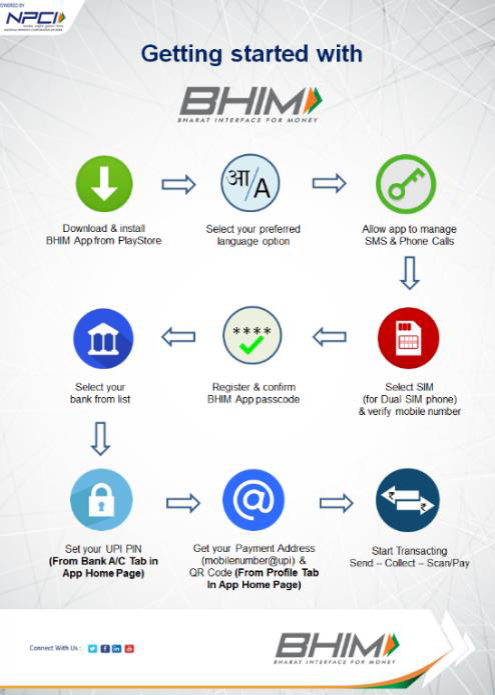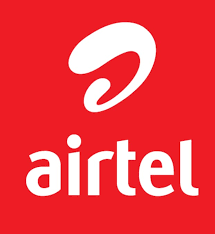All about Inter Bank Transfer-Frequently Asked Banking Questions and Terms
1. What is Inter Bank Transfer?
Inter Bank Transfer is a special service that allows you to transfer funds electronically to accounts in other banks in India through:
* NEFT – The acronym “NEFT” stands for National Electronic Funds Transfer. Funds are transferred to the credit account with the other participating Bank using RBI’s NEFT service. RBI acts as the service provider and transfers the credit to the other bank’s account.
* RTGS –The acronym “RTGS” stands for Real Time Gross Settlement. The RTGS system facilitates transfer of funds from accounts in one bank to another on a “real time” and on “gross settlement” basis. The RTGS system is the fastest possible inter bank money transfer facility available through secure banking channels in India.
2. What is the minimum/maximum amount for RTGS/NEFT transactions under Retail Internet Banking?
Type Minimum Maximum
RTGS Rs. 2 Lakhs Rs. 5 Lakhs
NEFT No Limit Rs. 5 Lakhs
3. What is the minimum/maximum amount for RTGS/NEFT transactions under Corporate Internet Banking?
Type Minimum Maximum
RTGS Rs. 2 Lakhs No Limit
NEFT No Limit No Limit
4. When does the beneficiary get the credit for a RTGS payment?
Under normal circumstances the beneficiary bank?s branch receives the funds in real time as soon as funds are transferred by the remitting bank.
5. When does the beneficiary get the credit for a NEFT payment?
The funds will be sent to the RBI within three hours of the transaction. The actual time taken to credit the beneficiary depends on the time taken by the beneficiary bank to process the payment.
6. If an RTGS transaction is not credited to a beneficiary account, does the Remitter get back the money?
Yes. If it is unable to credit the amount of the remittance to the account of the beneficiary for any reason, the beneficiary’s bank has to return the money to the remitting bank within 2 hours. Once this amount is received back by the remitting bank, the amount is credited to the Remitter’s account by the remitting bank branch.
7. If an NEFT transaction is not credited to a beneficiary account, does the Remitter get back the money?
Yes. If the money cannot be credited for any reason, the beneficiary’s bank has to return the money to the remitting bank . Once this amount is received back by the remitting bank, the amount is credited to the Remitter’s account by the remitting bank branch.
8. At what time during the day/week is the RTGS & NEFT service is available?
RTGS transactions will be sent to RBI based on the following schedule:
Day Start Time End Time
Monday to Friday 9:00 hrs 16:00 hrs
Saturday 9:00 hrs 13:00 hrs
NEFT transactions will be sent to RBI based on the following schedule:
Day Start Time End Time
Monday to Friday 8:00 hrs 18:30 hrs
Saturday 8:00 hrs 12:30 hrs
Please note that all the above timings are based on Indian Standard Time (IST) only.
9. What is the mandatory information required to make an RTGS & NEFT payment?
The Remitter has to provide the following details:
* Amount to be remitted
* Account number which is to be debited
* Name of the beneficiary bank
* Name of the beneficiary
* Account number of the beneficiary
* Remarks or description, if any
* The IFSC code of the beneficiary branch
10. How to find the IFSC code of the beneficiary branch?
Based on simple search option- Location, Bank & Branch. The IFSC code will automatically be updated or if you know the IFSC code of the beneficiary bank, you can provide it directly.
11. Do all bank branches in India provide RTGS & NEFT service?
No. RTGS facility is enabled only in specific bank branches across India. You can view a list of these branches in the RBI website: www.rbi.org.in/Scripts/Bs_viewRTGS.aspx. NEFT is enabled only in specific bank branches across India. You can view a list of these branches in the RBI website: http://www.rbi.org.in/scripts/neft.aspx.
12. How do I go about using this service?
1. You should be an active Internet Banking user with transaction rights.
2. Log on to Banks Website with Internet Banking ID and Password.
3. Click on the ‘Manage Interbank Payee’ link in the ‘Profile’ tab.
4. Select the ‘Add’ option and provide the Beneficiary Name, Beneficiary Account Number, Beneficiary Bank and transfer limit to register the Beneficiary.
5. IFSC code of the Beneficiary’s bank can be keyed in by two ways:
1. Click the IFSC Code option and a textbox is displayed where you can enter the 11 digit IFSC Code of the Beneficiary Bank.
2. Click the Location option, the following are retrieved and displayed.
* Beneficiary Bank Name – Dropdown Menu
* Location – Dropdown Menu
* Branch – Dropdown Menu
6. The confirm button will be enabled only after clicking the accept button in the terms and conditions window.
7. After providing all the details, the beneficiary will be added. It will be shown whether the added beneficiary bank is RTGS or NEFT enabled.
8. After adding the Beneficiary you will receive a high security password in your mobile number. This is done basically to double check your identity. Provide the password to authorize the Beneficiary After a Beneficiary is authorized you can start transferring funds.
9. You can proceed to make payments by clicking the ‘Inter bank Transfer’ link in the ‘Payments/Transfers’ tab.
10. According to the transaction type selected (RTGS/NEFT), the credit account details will be displayed depending on whether the branch is RTGS or NEFT enabled or both.
11. Select the Beneficiary from the list of registered Beneficiaries.
12. You can either confirm or cancel the transaction.
13. What are the service charges applicable for RTGS/NEFT transactions?
Commission charges: For outward RTGS Rs. 25/- per transaction.For Inward RTGS Rs. 100/- per message to be recovered from the recipient. Charges for NEFT transactions are as listed in the following table:
Amount Service Charge
RTGS Rs. 2 lakhs to Rs. 5 lakhs Rs. 25/-
Above Rs. 5 lakhs Rs. 50/-
NEFT Upto Rs. 1 lakh Rs. 5/-
Above Rs. 1 lakh to Rs. 2 lakhs Rs. 15/-
Above Rs. 2 lakhs Rs. 25/-
14. Whom I can contact, in case of non-credit or delay in credit to the beneficiary account for NEFT transaction?
Please contact your bank/branch or the receiver bank/branch or the Customer Facilitation Service center of the banks. The Customer Facilitation Service details for NEFT can be downloaded from here
# An RTGS transaction will be credited to your beneficiary’s account on the same day, provided your transaction is posted before the bank specified business hours. Please note that the minimum amount for an RTGS transaction is Rs. 2,00,000/-.
# NEFT transactions will be processed maximum within the next working day depending on the settlement time. There is no minimum transaction amount for NEFT transactions.
# State Bank Group transactions will be processed immediately under settlement time. There is no minimum transaction amount for State Bank Group transactions.
# Please note that RTGS/NEFT/State Bank Group transactions will be processed as per the following schedule only. Transactions will not be processed on Sundays or public holidays.
Know More…about RTGS/NEFT/State Bank Group Holidays
#
Transaction Type Monday Through Friday Saturdays
RTGS 9: 00 A.M. to 4: 00 P.M. 9: 00 A.M.to 1: 00 P.M.
NEFT 8: 00 A.M. to 6: 30 P.M. 8: 00 A.M.to 12: 30 P.M.
State Bank Group 8: 00 A.M. to 4: 00 P.M. 8: 00 A.M.to 12: 30 P.M.
# All beneficiaries accounts added under RTGS/NEFT service maintained at any State Bank Group Bank(State Bank of India, State Bank of Bikaner & Jaipur, State Bank of Hyderabad, State Bank of Patiala, State Bank of Travancore & State Bank of Mysore) by default will be available under State Bank Group Transfer in Payments/Transfer — > Manage Interbank Transfer link. Also, if the transaction scheduled date is of a State Bank Group Transfer holiday, the same will be scheduled for next transaction date.
 NACH- NPCI has implemented National Automated Clearing House
NACH- NPCI has implemented National Automated Clearing House  New Fund Offering by SBI MF – SBI Dividend Yield Fund
New Fund Offering by SBI MF – SBI Dividend Yield Fund  Bharti Airtel’s 5G user-base expands
Bharti Airtel’s 5G user-base expands  GK TODAY -HISTORY AT A GLANCE
GK TODAY -HISTORY AT A GLANCE